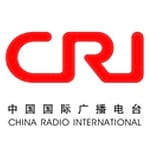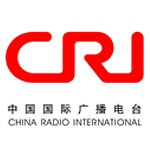
What is the most nerve-wracking HR issue? From my past 15 years’ experience in human resource consultant business and numerous conversations I had with over thousands of HR professionals and employers, I have realized it is not the employee recruitment that we often talk about that worries the companies mostly, but the problem caused by staff demission.
There are plenty of possible solutions when a company is lacking of applicants for job vacancies: such as advertising, improvements of pay and conditions or seeking help from third party’s support. Employee leave management, by comparison, could be a really thorny issue for the employers since it is often too late to remedy when your staff already applied for his resignation.
Defective employee exit management
-
Abomination on separated staffs
The loyalty to employer has been one thing every company valued greatly. It brings me no surprise to witness these hates and blames that have been put on the employees who applied for their resignation, as it is often seen as “betrayal” by the employers.
However, there is actually no necessity to have such hatred on your separated employees. The society we are living today is far different from dozens years ago when your employee might have a life-long career in your company. Your employees’ resignation means nothing but their pursuit for a more suitable career developing environment, just as good as employers dismiss the staffs who no longer fit into the companies’ development. Take you staff’s resignation personal should be the last thing to do when you are having a staff who is still working hard and following company’s policies before his off boarding.
-
Feel frightened for staffs’ leaving
Based on the aforementioned company mindset, this type of companies tend to simultaneously afraid staff exit as they usually worry about the negative impact the exit would trigger on other staffs’ thoughts internally as well as the jeopardy it might cause on company’s reputation and promotion externally. An example would be the ASUS’s dilemma led by its founder Wei qiXie’s resignation, who had sent an e-mail to the entire manufacturing department and disclosed the cronyism of ASUS’s high level personnel.
The ASUS case shows the damage a high level offbording staff could make. Yet, is it really an issue raised by employee separation? Or is it an unnecessary trouble due to the lack of control on staff’s status observation and relationship management? Being frightened by staff exit would never provide a company any good, as employee turnover itself is always inevitable. But the employers could always minimize the negative affects by implementing the right management strategy to prevent such failure in advance.
-
Mindless employee exit process
Simple or complicated, every organization has its employee termination process. But it differs quite a lot depends on the genuine purpose you are doing it. No matter how “humanized” your separation interview looks like, it will still bring nothing if you are only doing it to meet the requirements asked by domestic law and do not understand the true significance of such conversation. The employee exit process, and especially the separation interview, could be a great value for employers who understand the importance of it other than simply completing the process to have a leaving certificate, as it offers the best opportunity to understand your staff’s real thought and to optimize your business base on it.
-
Ignored leaver resource management
A company that operated for years often has more exit staff than their current employees. The value of exit staffs could be immeasurable if a company like this could manage these resources wisely: word of mouth; business referral; talents referral or even let the valuable exit staff to return the company and etc. And all of these are built upon how the company will manage these human resources.
Leaving Management Starts from Onboarding
As mentioned at the start, once your employee is officially applying to leave, it would become very unlikely for the employer to retain the employee from resignation no matter you are offering a salary raise or a heart-to-heart talk. After all, your employee would never leave the job without a thorough consideration. That is also why your “employee termination prevention” is vital.
So where should be the starting point of such prevention? Ideally I will suggest you to start from your new staff’s onboarding stage. The first step is about the background checking. The line manager and relative HR personnel should be aware of the new staff’s personal background including: family information (family structure, occupation, salary, age, parent’s residence and etc.); personal information (educational background, major experiences, interests, permanent address and etc.); the main reason to leave the previous job as well as the motivation to join your company. Despite most of the questions will be asked during the job interview, the line manager often focus only on the job related information instead of candidate’s personal information. However, such information plays a crucial role in terms of preventing your staff from resignation, as it provides you better understandings regarding your subordinates’ status-quo and makes it easier for you to make adjustments upon it and prevent any unnecessary issue that may result in their resignation. Imaging you are the line manager of a staff whose wife is in early stage of pregnancy. Your subordinate is very likely to feel dissatisfied or stressful if you
Humanized offboarding system
There is a large amount of enterprises that are still setting enormous barriers for their offboarding employees, such as: withholding documents, setting penalty, blocking working information, revoking social insurance and etc. In fact, these commonly set barriers could hardly reduce the employee turnover, but turn your exited employees to strangers or even enemies of your company. On the opposite, the director of a famous architecture designing company not only put no blame on his section chief who was job hopping to their competitor’s company but also arranged relative personnel to help him finishing his separation process smoothly and promised to continually paying for his social insurance until the next month to let the leaving staff have a complete social insurance record. “There is nothing wrong about the will to explore the outside world, but come back home if you don’t feel a fit.” The director simply told this to his leaving staff. Accordingly, his reaction receives genuinely appreciation from his staff.
Any negative practice would not bring any benefit to the company. And a humanized separation system helps you greatly to manage an ideal relationship with the employee who left. Make sure you have the cooperative attitude as usual for your employee’s check-out procedure.
The completion of your former employee’s separation procedure in no way indicates the termination of your relationship. On the contrary, the value of rehiring former staff could be even higher than bringing new people. The senior specialist of McKinsey Doc. Malick once said: “the new grasses might appear to be greener, but it is often not the case. It might be hard for employer to find the true value of your employees and make corresponding promise based on it at the first time you hire them. But we often explore a goldmine at the second time.” To be specific, rehiring the old employee could bring great benefit to your organization from 3 perspectives. First of all, hiring the left employees would bring a company more efficiency with less cost. According to Fortune magazine, from new replacement searching to job training, the replacement cost itself is 1.5 times higher than the exit employee’s salary. And this number even goes higher for senior positions’ brain drain. The Fortune 500 are averagely saving 12 million dollars through bringing back the old employees.
The second aspect is about company brand building. Establishing “employee rehiring” policy gives your company an open-minded impression to both your internal staffs and external market. Would you choose an unbiased and professional company with such “returning home” policy or a narrow-minded company that always put blames on their former employees were you a job seeker? I think the answer is obvious. Besides, the returning staffs also imply the superiority of the company. This brings another positive effect to your enterprise as it shows to other current staffs that they might have better career development to stick with you and indirectly reduces employee turnover. Last but not least, bringing back employees who had left before brings an ideal chance to optimize your company’s practice. Use this opportunity to find your companies’ problem regarding management and policies could make positive changes dramatically.
Rehiring separated employee is never about waiting for them to send you their updated CV, but the relationship management after their contracts’ termination. McKinsey & Company is famous for its well-known “McKinsey Alumni”, which is a roster recorded the information of all employees who had left. Another noted example is Bain & Company’s exit staff management story. Bain & Co not runs a database that recorded the information of over 2000 separated employees, but also appointed a supervisor in HR department to tract their old employee’s career development and make updates on their database accordingly. There are many more companies with all kinds of different preferential policies for exit employees. But they are all taking the same benefit of the policies and attracting more core talents to return.
The demission management system for modern corporations is like a never-stopping machine that starts spinning from the moment at the employee’s onboarding stage. The constant operating and updating system offers advance chances for employers in the market as it includes and facilitates the segments of recruiting, training, staff relations and employer branding and brings you huge advantages.
To read the original article, please click: http://ceoworld.biz/2015/10/09/leave-management-is-a-system-starts-from-the-first-day




